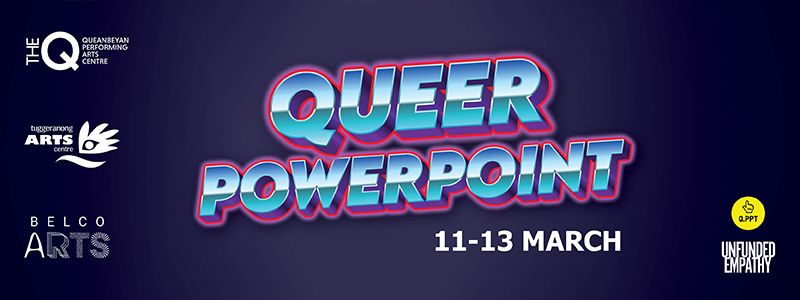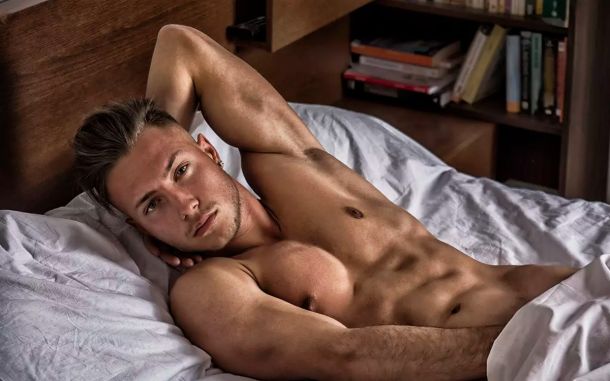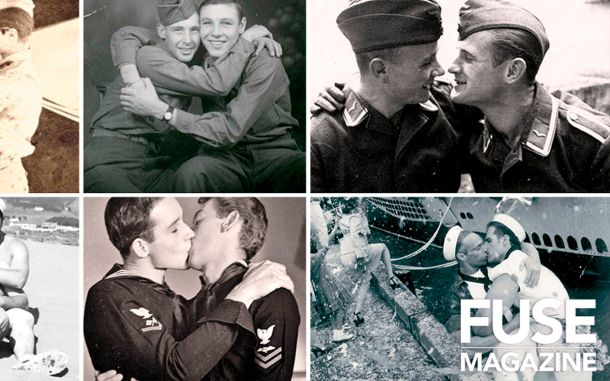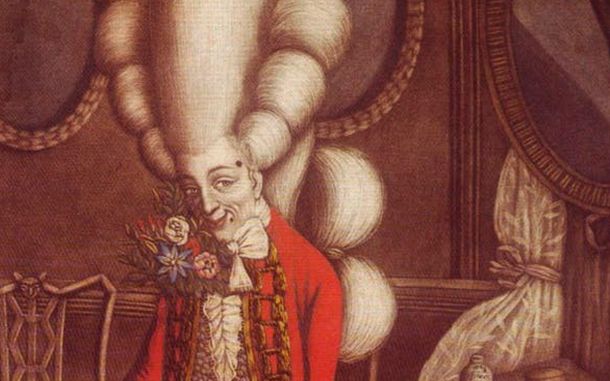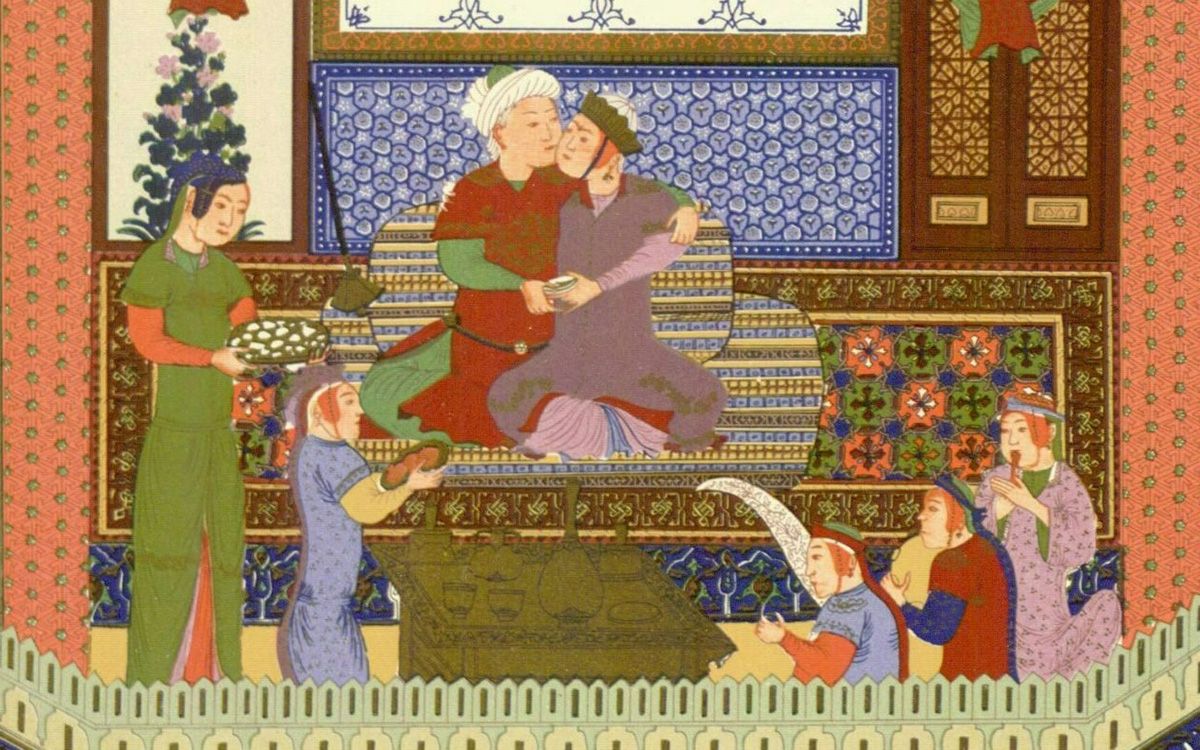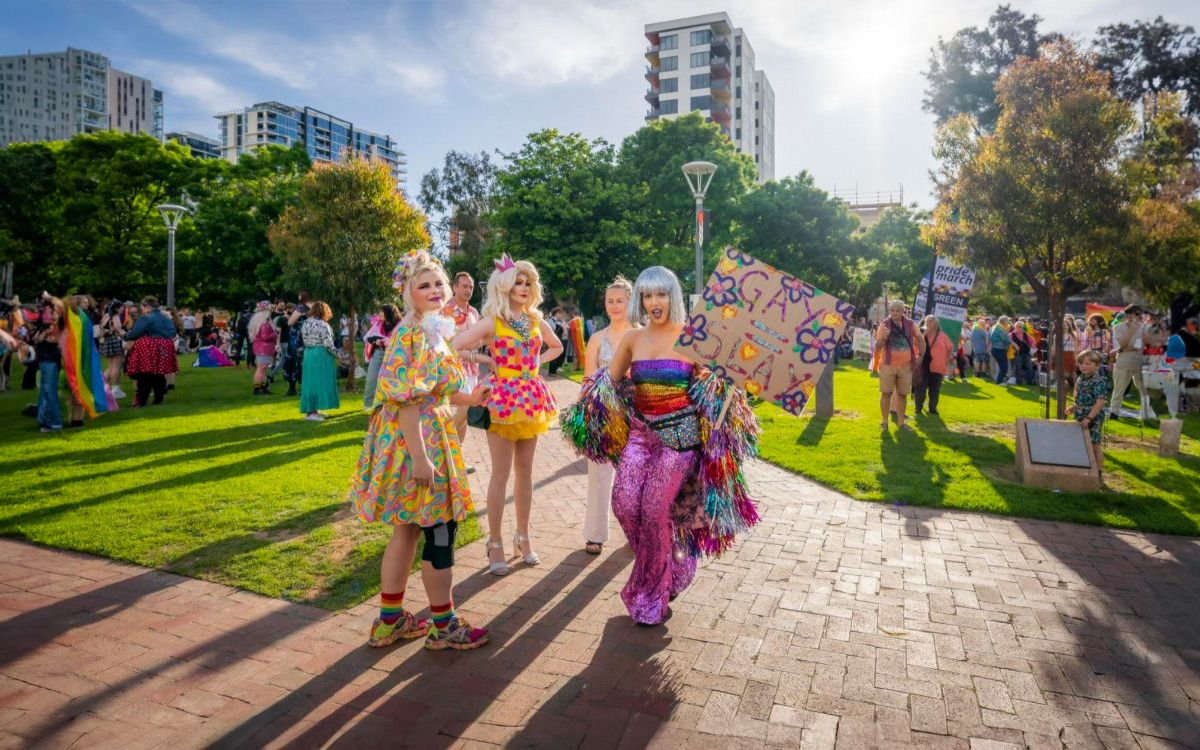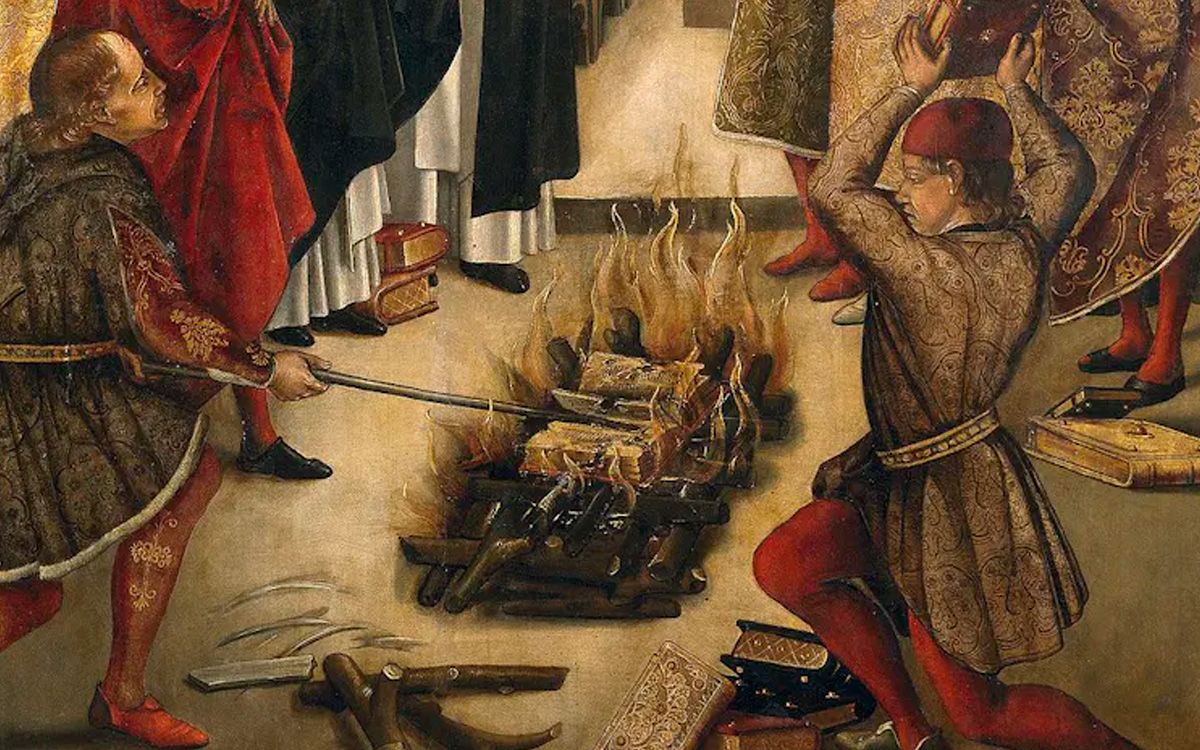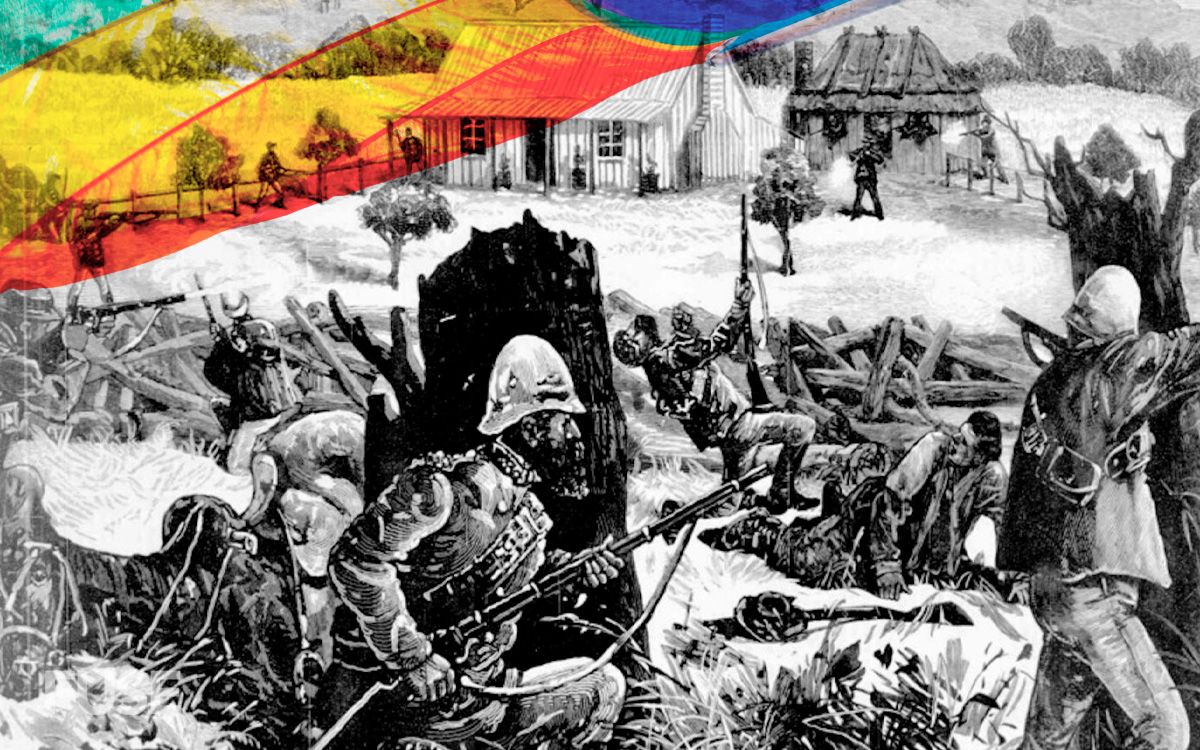The Secret Gay Life of Hollywood
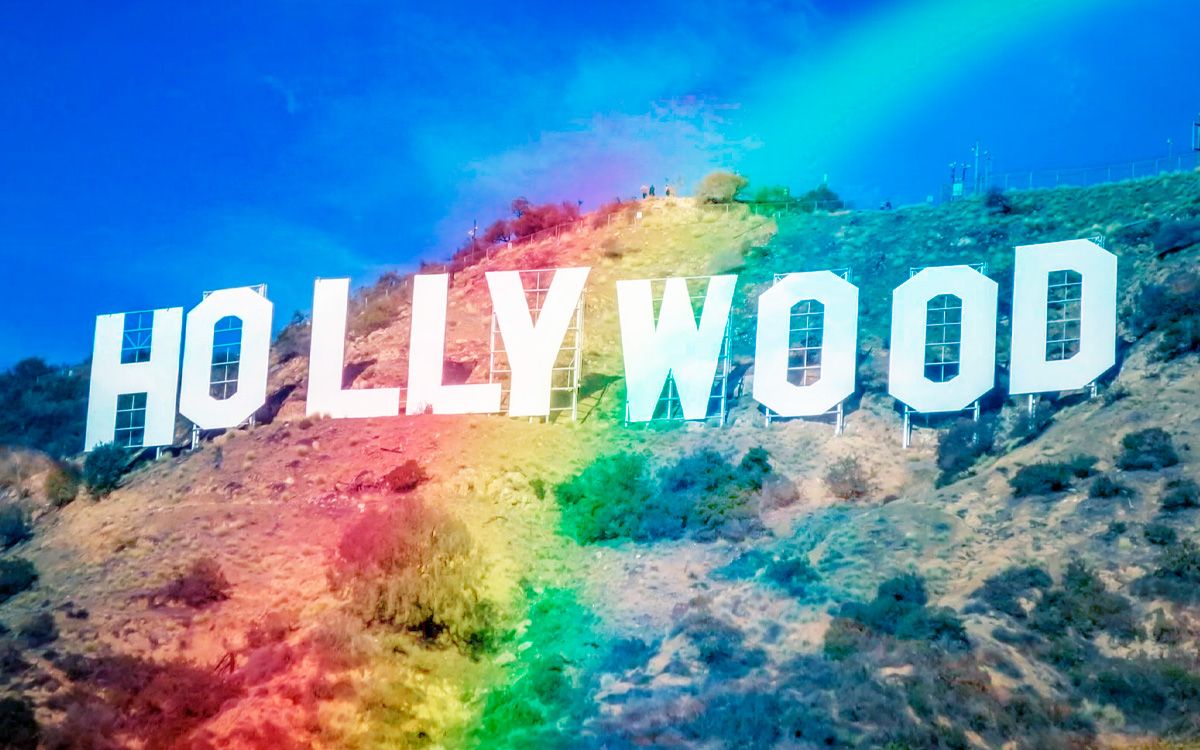
Flashback! The Hollywood film industry has always had a high percentage of gay and lesbian employees, drawn to the theatre as a world of creativity, open mindedness and experimentation. Yet the hypocrisy is that as gay as Hollywood was (and is), actors have had to pretend that it isn’t.
Hollywood has a history where it welcomes and nurtures gay and lesbian lifestyle behind the scenes but has often gone to great pains to keep its queer little secret from the heterosexual viewing public.
It all started during the early days of motion pictures. During the sexual revolution of 1920s there was ambivalence around gender roles and this was reflected in popular movies with icons like Valentino and Marlene Dietrich. But eventually the media started to make fun of these gender-bending characters.
The very handsome Valentino (pictured below) held a number of public boxing matches to affirm his masculinity after the media named him the “pink powder puff”. Sadly it was wounds from one of these fights that ultimately lead to his death at only 31-years-old. At the time of his death he was romantically involved with a woman.

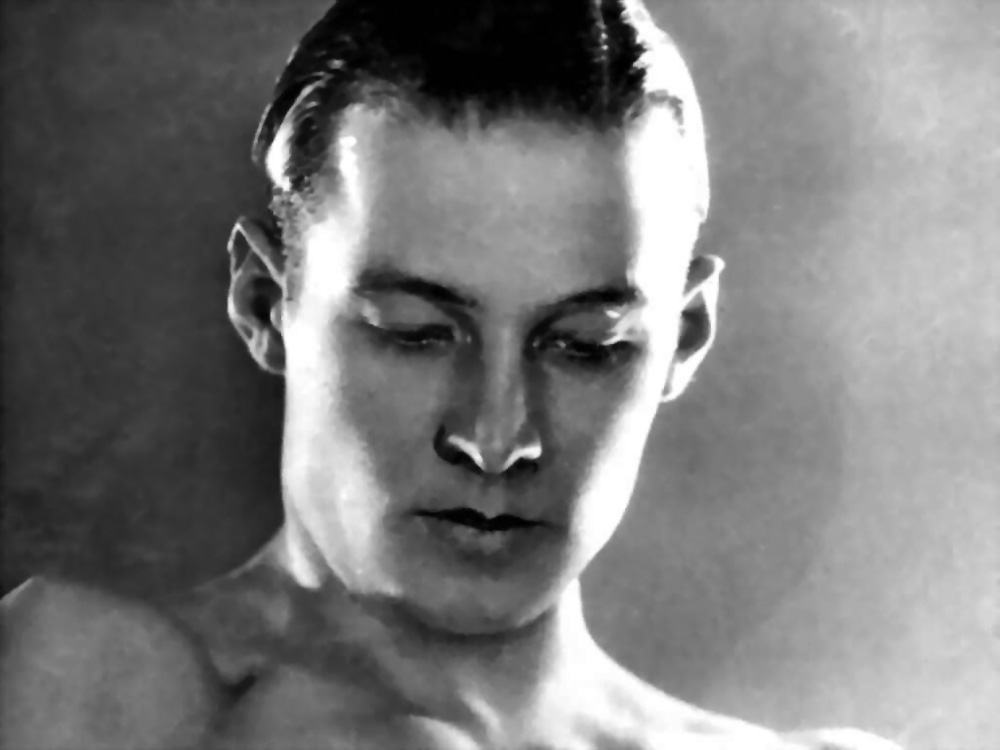
(Considered one of the most popular stars from the silent-screen era, the Italian actor, Rudolph Valentino quickly became a sex symbol with his darkly handsome looks.)
Leading man, Billy Haines was caught cavorting with a sailor at a downtown YMCA by police. His agent fired him and his acting career was over. This and a number of other sex scandals were exploited by the media and became the early days of the now rampant celebrity gossip columns. Needless to say it led the public to believe that there was a certain immorality in Hollywood and there was a public backlash.

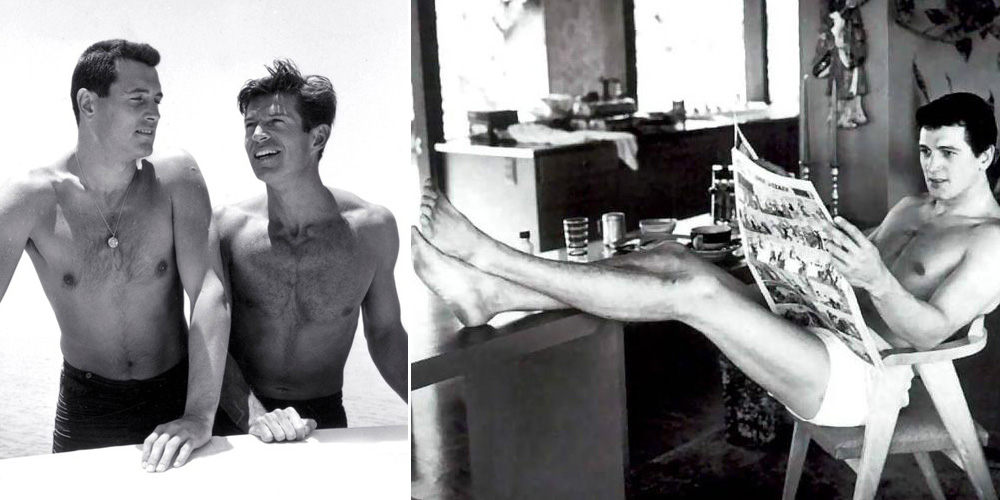
(Closeted Gay Hollywood star Rock Hudson died in 1985, becoming the first major celebrity to die from an AIDS-related illness.)
In the 1950s the moral code became even stricter and gay actors and actresses lived in a culture of fear. Rock Hudson was one of the biggest stars of the time yet his homosexuality was concealed by the arranged marriage to his secretary.
The marriage was short lived but Hudson’s sexuality and long-term relationship with fellow actor Marc Christian was kept secret until his public announcement that he had contracted AIDS in the mid 1980s.
Other big stars of the era rumoured to be gay or bisexual include: Cary Grant — who lived with fellow actor Randolph Scott for twelve years but repeatedly denied that they were a couple, even though many of the photographs depicting Scott and Grant at home and at play seem to obviously convey otherwise; James Dean — who has been linked with a number of gentlemen; and Joan Crawford — who loved women and allegedly even had a one night stand with Marilyn Monroe.

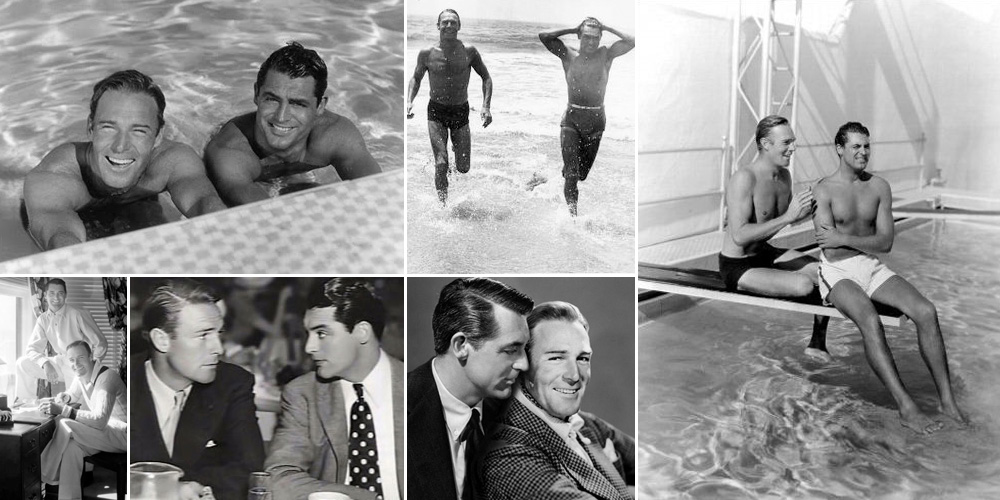
(Photo: Hollywood under-cover gay lovers, Cary Grant and Randolph Scott)
Women’s groups and religious groups warned Hollywood to clean up its act which led to the first cinematic classifications guidelines in 1933. These self regulated dos and don’ts were particularly harsh on sexuality, and especially homosexuality.
The 1930s were the golden age of Hollywood and the birth of the STAR... but the fans were not getting the whole story. Studio contracts meant that a lot of money was riding on a particular actor’s reputation and damage control became de rigueur for agents who basically had complete control over celebrities lives. The stars were under very strict morals contracts that defined the way they dressed, how they behaved and of course who they dated. If they misbehaved they could be fined or put on suspension or, worst of all, be fired.
The androgynous actors of the past were replaced by ultra masculine actors and feminine female leads. But of course this in no way reflected their actual sexual persuasion. So to enforce their public heterosexual image, studios conducted elaborate arranged “lavender” marriages for gay actors — the classic example being Barbara Stanwyck and Robert Salem, whose false union was mutually beneficial for concealing both actors true sexuality.
Surprisingly, the sexual liberation of the 1960s and 70s had little effect on the secretive nature of Hollywood. Although films like Midnight Cowboy began to push the sexual envelope and homosexuality as a subject began to appear in movies, it was still a big no-no for any actor to actually be gay.

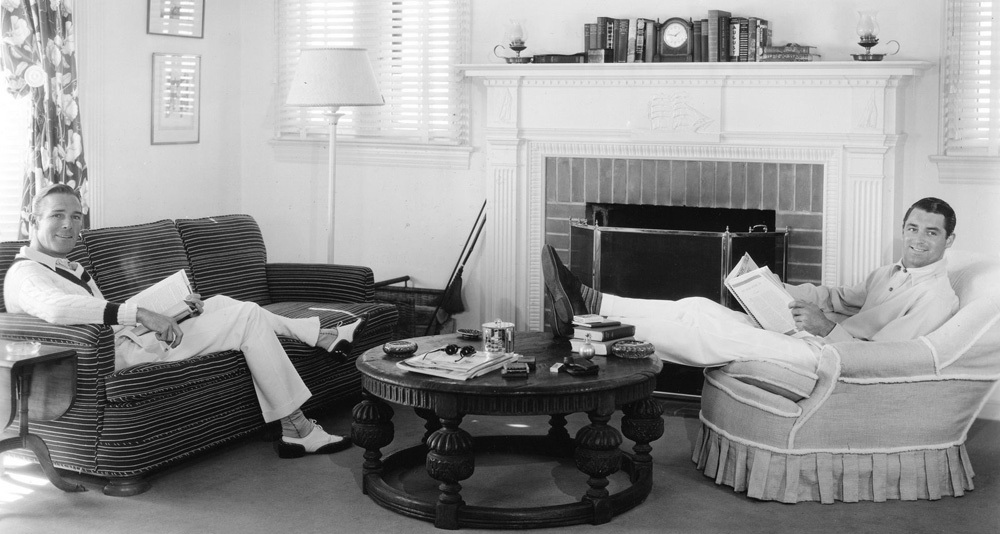
(Photo: Gay lovers, Cary Grant and Randolph Scott were “house mates” for over 12 years.)
And not much has changed today. With all the gay themed movies, popular gay characters and even a handful of out actors around, Hollywood still operates the same way with many actors and actresses questionable sexuality splashed across the tabloids like it was a bad thing. And sadly it does genuinely seem to affect their careers.
When Pee Wee Herman’s Paul Ruebens was busted by cops taking things into his own hands in a gay porn cinema, his career was over. But when leading British heartthrob, Hugh Grant was caught cheating on his girlfriend Elizabeth Hurley with cheap street-hooker, Divine Brown, it not only didn’t lower his popularity but it actually quashed those hushed gay rumours and cemented his image as a ladies’ man. The message here is clear: career-wise, it’s much better to have a straight sex scandal than a gay sex scandal.
Apparently the majority hetero viewing public need to be able to relate to their leading men and women and need to believe on some level that they could be romantically involved with them — even though the chances of that are virtually nought, no matter what their sexual preference.
The irony is that there are now many gay characters in films. Yet strangely, whereas thirty years ago a straight actor would be risking his career playing a gay role, it is now considered a benchmark of their talent and almost guarantees them an Oscar nomination.

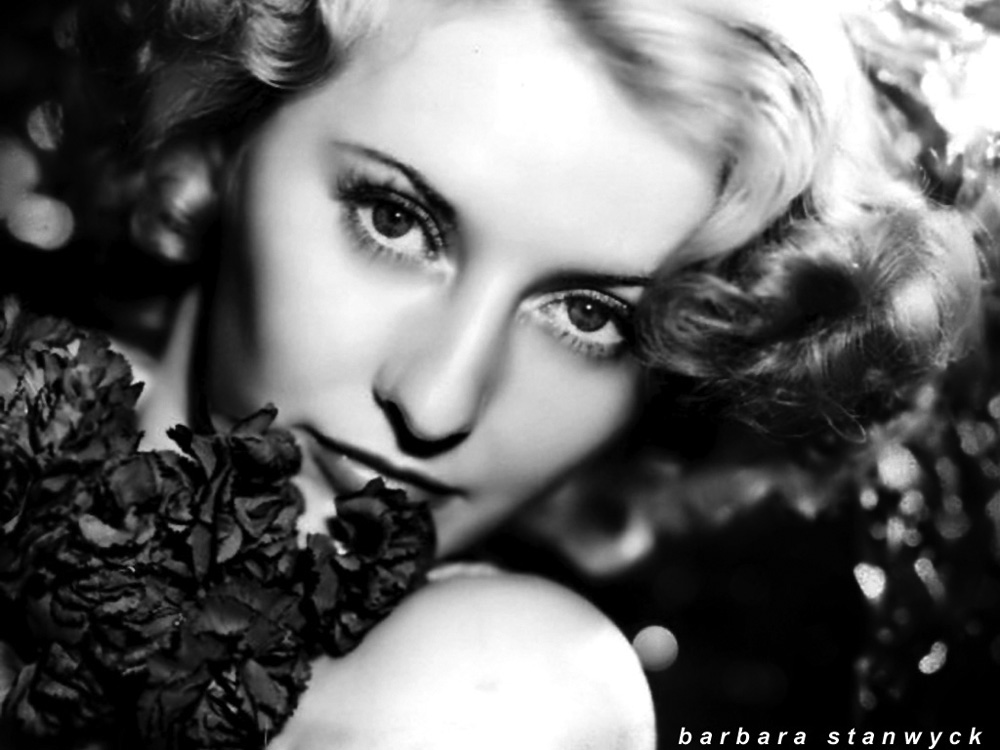
(Photo: It had been rumored that Barbara Stanwyck was a lesbian.)
But sadly for openly gay actors like Rupert Everett and Ellen DeGeneres, their repertoire is limited. It’s ok for a straight man to play a gay role but it’s not ok for a gay man to play a straight role. Tom Hanks cast in Philadelphia made the audience feel comfortable with the subject matter — but Anne Heche in a romance with Harrison Ford in Six Days and Seven Nights? Forget it! The theory is still that actors will alienate their audience if they are gay and it will cut box office takings in half.
It’s like how they used to paint up white actors and hire them to play coloured roles, but now we find that un-pc. Will we someday think heterosexual actors playing gay characters is un-pc? And will the heterosexual audience ever be enlightened enough to cope with gays playing straight roles?
Until that shift in consciousness occurs, most gay and lesbian actors will remain in the closet. Things can go on behind closed doors but the Hollywood establishment will do everything they can to see to it that the real facts about Hollywood never become so public that they will affect the business of Hollywood.


